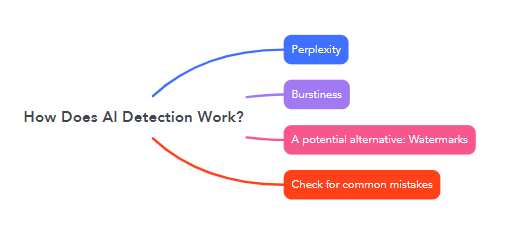As we enter 2025, the role of AI detectors has become increasingly significant in various environments, especially in educational institutions and workplaces. If you’re a teacher concerned about the integrity of assignments or a student afraid that your efforts might be misidentified, understanding the importance of AI detectors is crucial.
Table of Contents
The Growing Necessity of AI Detectors in 2025
In 2025, AI detectors are more than just tools; they have become essential in preserving honesty in both learning and working scenarios. With advanced language models (LLMs) actively transforming how we approach tasks and studies, AI detectors are positioned as vital allies in upholding authenticity.
How AI Detectors Work

AI detectors analyze text to distinguish between human-generated and AI-generated content. By evaluating factors like style, syntax, and coherence, these tools provide insights that help educators and employers ascertain the originality of submitted work. This technological advancement alleviates the anxiety teachers face when assessing the authenticity of student submissions.
Benefits of Utilizing AI Detectors
Utilizing AI detectors comes with multiple advantages:
- Ensure Academic Integrity: Teachers can confidently identify potential plagiarism or AI-generated content, maintaining the fairness of evaluations.
- Support Learning: Students are encouraged to focus on developing their writing and analytical skills, knowing that their genuine efforts are recognized.
- Adapt to Technological Changes: As AI continues to evolve, being equipped with detection tools helps educational systems and businesses stay ahead of potential challenges.
Popular AI Detectors
In 2025, several AI detectors have gained popularity for their accuracy and ease of use. Originality.AI is a leading choice for content creators, offering reliable AI detection for blog posts and articles (visit Originality.AI). GPTZero specializes in identifying text generated by AI, making it a favorite among educators (learn more about GPTZero). For developers, AI Text Classifier by OpenAI provides a straightforward tool to distinguish AI-generated content (check AI Text Classifier). These tools are shaping how AI-generated content is identified and managed across industries.
Find more on : Best AI Detector Extension for Chrome
Conclusion
In conclusion, adopting AI detectors is not just a trend, but a necessity. By integrating these tools into your practices, you protect the value of hard work and creativity, promoting a culture of honesty and trust in the digital age.
Embrace the evolution—understand the role and function of AI detectors to enhance your learning and working environment in 2025!
Frequently Asked Questions
What are AI detectors?
AI detectors are tools used to analyze text and determine if it has been generated by an AI or written by a human.
Why should teachers use AI detectors in 2025?
Teachers can use AI detectors to ensure academic integrity and maintain fairness in grading by identifying potential AI-generated content.
How do AI detectors benefit students?
AI detectors create an environment where students can focus on honing their skills and creativity, knowing their original work will be recognized.
Are AI detectors effective?
Yes, AI detectors are designed to be effective in distinguishing between human-written and AI-generated content based on text analysis.
Will AI detectors evolve with technology?
Yes, AI detectors are continually updated to adapt to advancements in AI and LLM technologies, ensuring their effectiveness in detecting content.






[…] See More: Should You Use AI Detectors in 2025? […]